
Kaunas: Where History and Modernity Meet
Nestled at the confluence of the Nemunas and Neris rivers, Kaunas is the second-largest city in Lithuania and a vibrant cultural hub. Rich in history, this city offers a unique blend of medieval structures and modern architecture. Wander through the cobblestone streets of the Old Town, where you can admire the Gothic Kaunas Castle and the stunning Town Hall, often referred to as the 'White Swan'. Kaunas is not just about history; it is also a city of innovation and creativity. The vibrant Laisvės Alėja, a pedestrian street, is lined with cafes, shops, and historical landmarks. For art enthusiasts, the M. K. Čiurlionis National Art Museum and the street art scattered throughout the city offer a visual feast. Nature lovers will find solace in the lush parks and riverside promenades. The city's green spaces, like the Nemunas Island Park, provide a serene escape from urban life. Kaunas is also known for its festivals, including the Kaunas Jazz Festival, which attracts musicians from around the world. Whether you're a history buff, an art lover, or simply looking for a relaxing getaway, Kaunas has something to offer. Its warm and welcoming atmosphere makes it a must-visit destination in Lithuania.
Local tips in Kaunas
- Visit Kaunas Castle early in the morning to avoid the crowds and enjoy a peaceful experience.
- Try traditional Lithuanian dishes at local restaurants, such as cepelinai and šaltibarščiai.
- Take a stroll along Laisvės Alėja to experience the city's vibrant atmosphere and local culture.
- Use public transportation or rent a bike to explore the city more efficiently.
- Check local event calendars for festivals and cultural events during your visit.
Neighbourhoods in Kaunas
Kaunas: Where History and Modernity Meet
Nestled at the confluence of the Nemunas and Neris rivers, Kaunas is the second-largest city in Lithuania and a vibrant cultural hub. Rich in history, this city offers a unique blend of medieval structures and modern architecture. Wander through the cobblestone streets of the Old Town, where you can admire the Gothic Kaunas Castle and the stunning Town Hall, often referred to as the 'White Swan'. Kaunas is not just about history; it is also a city of innovation and creativity. The vibrant Laisvės Alėja, a pedestrian street, is lined with cafes, shops, and historical landmarks. For art enthusiasts, the M. K. Čiurlionis National Art Museum and the street art scattered throughout the city offer a visual feast. Nature lovers will find solace in the lush parks and riverside promenades. The city's green spaces, like the Nemunas Island Park, provide a serene escape from urban life. Kaunas is also known for its festivals, including the Kaunas Jazz Festival, which attracts musicians from around the world. Whether you're a history buff, an art lover, or simply looking for a relaxing getaway, Kaunas has something to offer. Its warm and welcoming atmosphere makes it a must-visit destination in Lithuania.
When is the best time to go to Kaunas?
Iconic landmarks you can’t miss
Nemunas and Neris Confluence Park
Discover the lush landscapes and tranquil waters at Nemunas and Neris Confluence Park, a must-visit destination in Kaunas for nature lovers and explorers.
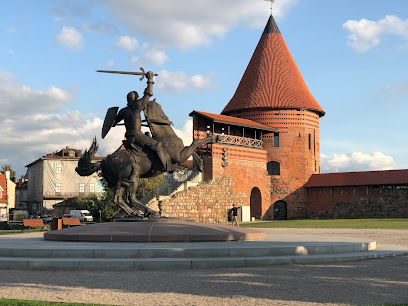
Oak-Wood Park
Immerse yourself in the natural beauty and tranquility of Oak-Wood Park, a lush urban oasis in Kaunas, offering recreational activities and scenic landscapes.
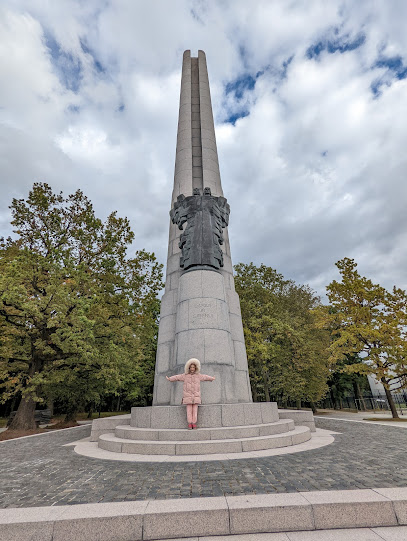
9th Fort of the Kaunas Fortress
Discover the profound history and architectural beauty of the 9th Fort of the Kaunas Fortress, a key memorial park and museum in Lithuania.
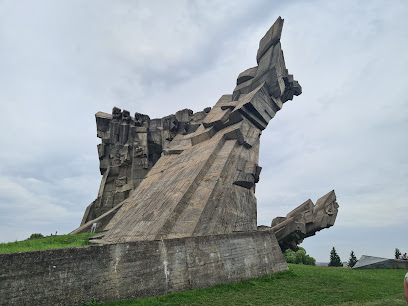
Pažaislis Monastery and Church
Explore the spiritual and architectural beauty of Pažaislis Monastery, a must-see Baroque gem on the banks of Kaunas Reservoir.
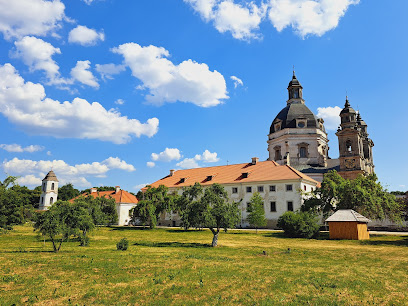
Aleksotas Observation Deck
Discover the stunning vistas of Kaunas from the Aleksotas Observation Deck, a premier viewpoint offering breathtaking panoramas of the city and surrounding landscapes.
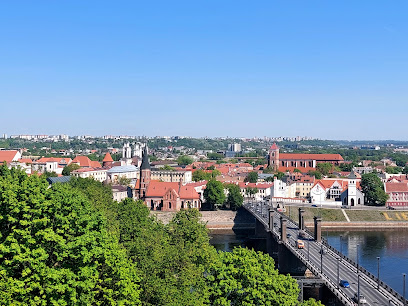
Panemunė pinewood
Explore the natural beauty and tranquility of Panemunė Pinewood, a lush escape in Kaunas, perfect for nature lovers and outdoor enthusiasts.
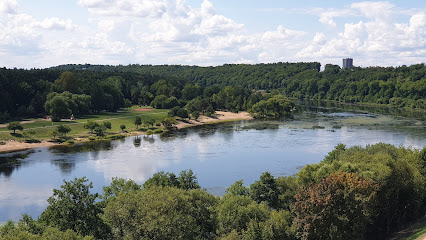
Vytautas the Great War Museum
Discover the rich military history of Lithuania at the Vytautas the Great War Museum, a must-visit destination for history enthusiasts.
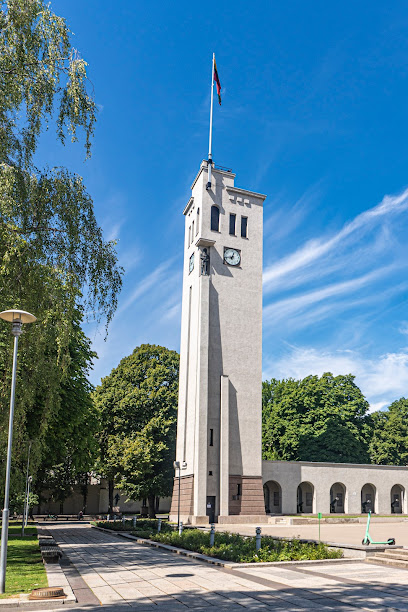
M.K. Čiurlionis Museum of Art
Explore the enchanting world of Lithuanian art at the M.K. Čiurlionis Museum of Art, where visual masterpieces meet musical inspiration in Kaunas.
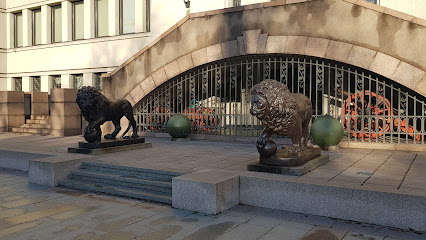
Church of St. Michael the Archangel, Kaunas
Explore the stunning Church of St. Michael the Archangel in Kaunas, a captivating blend of spirituality and architectural beauty that defines Lithuanian heritage.
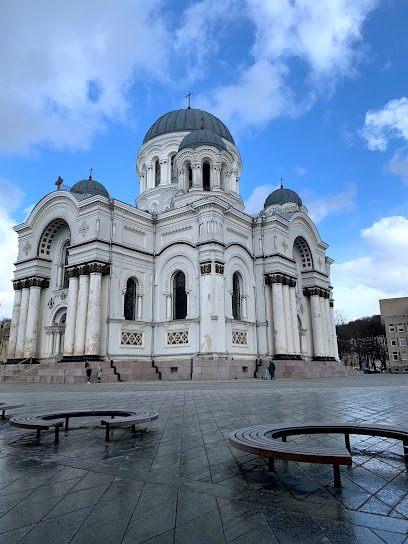
Christ's Resurrection Church
Discover the stunning Christ's Resurrection Church in Kaunas, a modern basilica rich in history and architectural beauty, offering breathtaking city views.
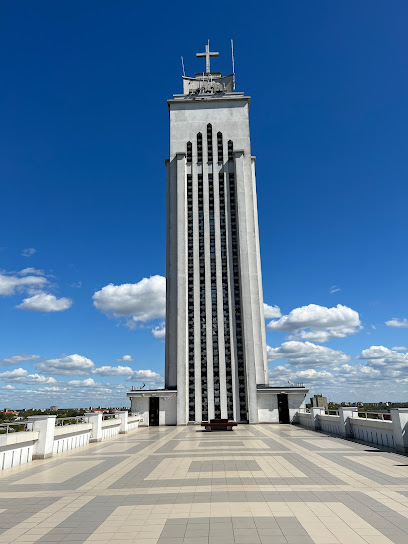
Devils' Museum
Explore the captivating world of folklore at Kaunas' Devils' Museum, where myths and legends come to life through an extraordinary collection of artifacts.
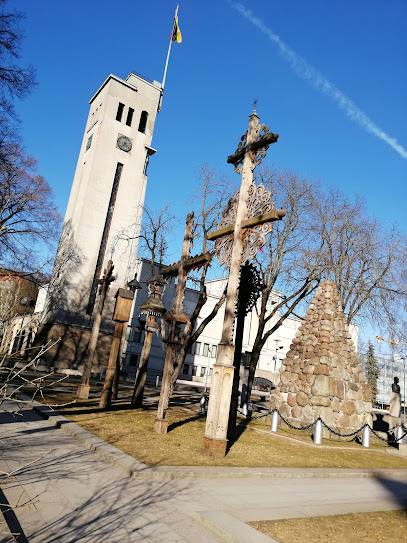
Kaunas Town Hall
Discover the architectural beauty and rich history of Kaunas Town Hall, a must-visit attraction in the heart of Lithuania's vibrant Kaunas city.
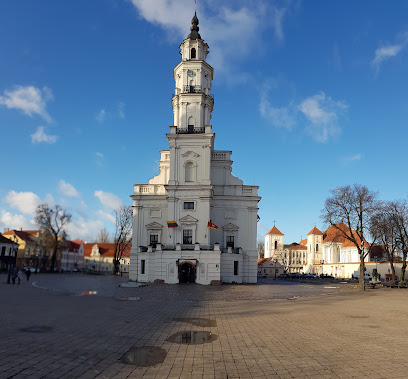
Historical Presidential Palace, Kaunas
Discover Lithuania's political legacy at the Historical Presidential Palace in Kaunas, a captivating museum showcasing rich heritage and stunning architecture.
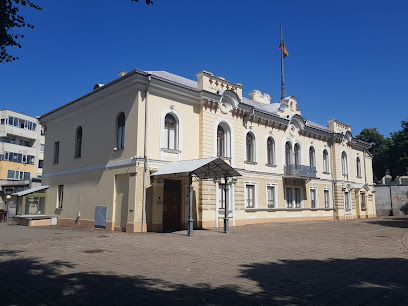
Church of Vytautas the Great
Experience the rich history and stunning architecture of the Church of Vytautas the Great in Kaunas, Lithuania, a must-visit tourist attraction.
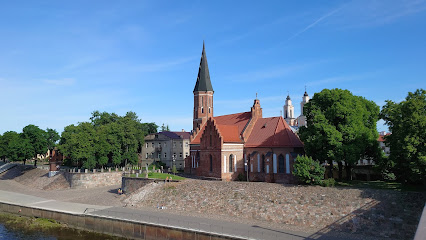
Church of St. Gertrude
Explore the architectural splendor and spiritual serenity of the Church of St. Gertrude, a key attraction in Kaunas, Lithuania.

Unmissable attractions to see
Nemunas and Neris Confluence Park
Discover the serene beauty of the Nemunas and Neris Confluence Park in Kaunas, where nature and history blend seamlessly for an unforgettable experience.
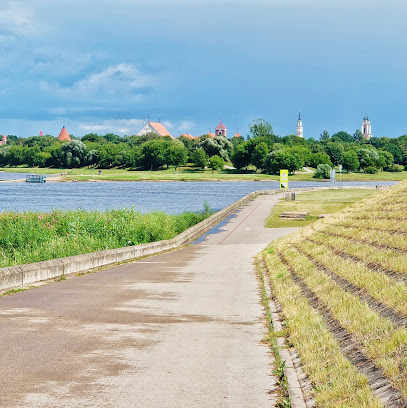
Raudondvaris
Explore the enchanting Raudondvaris Castle and Museum in Lithuania, where history meets beauty in a picturesque setting.
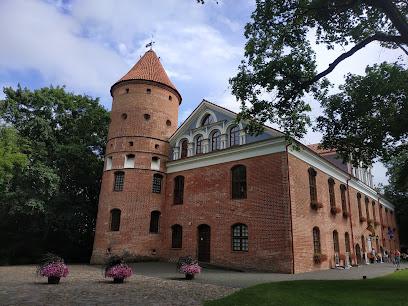
Kaunas Castle
Explore Kaunas Castle, a historical fortress that showcases Lithuania's rich heritage and offers breathtaking views and fascinating exhibitions.
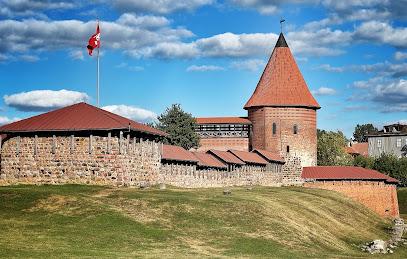
Lithuanian Zoo
Explore the Lithuanian Zoo in Kaunas: A family-friendly destination showcasing diverse wildlife and promoting conservation efforts.
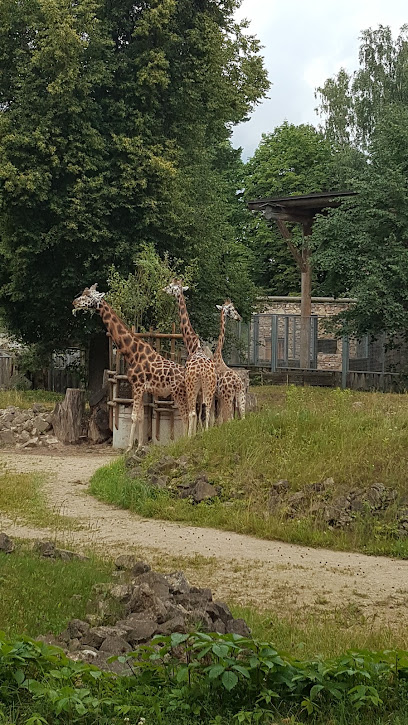
Oak-Wood Park
Explore the tranquil Oak-Wood Park in Kaunas, where lush landscapes and outdoor activities await every nature lover.
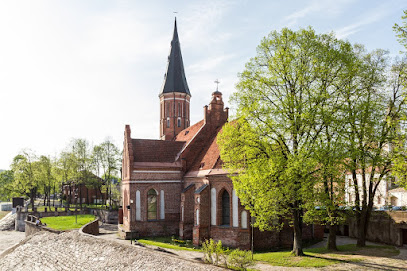
9th Fort of the Kaunas Fortress
Explore the 9th Fort of the Kaunas Fortress, a remarkable museum and memorial park that unveils Lithuania's rich historical tapestry.
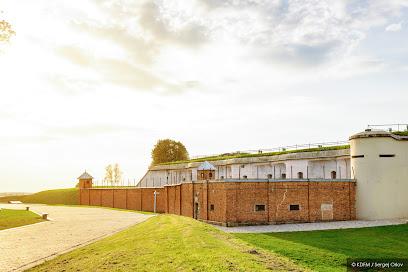
Pažaislis Monastery and Church
Explore the Baroque beauty and serene landscape of Pažaislis Monastery and Church in Kaunas, a cultural gem of Lithuania.
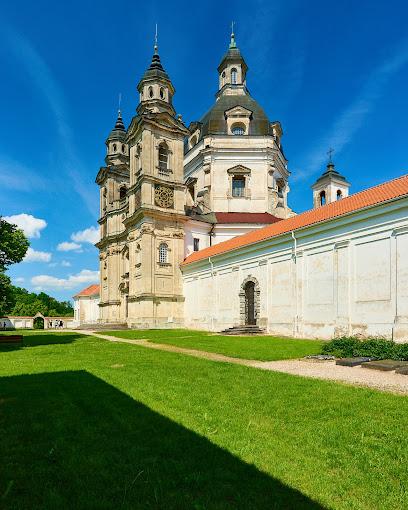
9th Fort of the Kaunas Fortress
Discover the rich history of the 9th Fort of the Kaunas Fortress, a poignant museum and memorial park in Lithuania's stunning landscape.
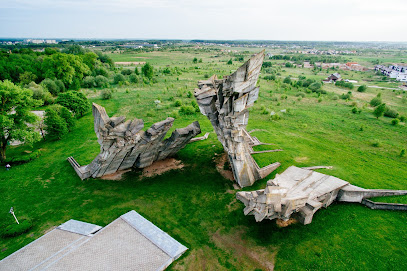
VDU Botanical garden
Explore the VDU Botanical Garden in Kaunas, a lush haven of diverse plant species, beautiful landscapes, and tranquil paths perfect for relaxation.
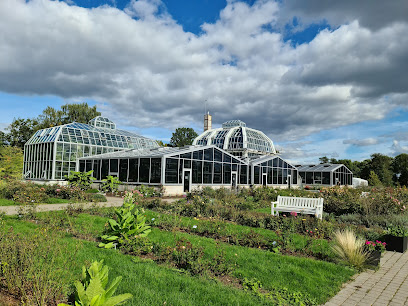
Lietuvos etnografijos muziejus
Explore the heart of Lithuania at Lietuvos Etnografijos Muziejus, where culture and history come alive through captivating exhibits and artifacts.
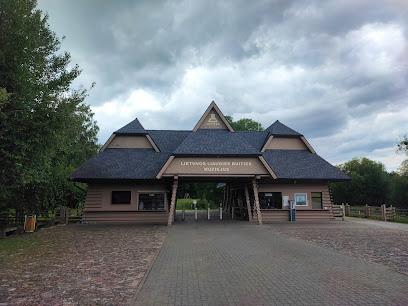
Kaunas Tadas Ivanauskas Museum of Zoology
Explore the fascinating world of zoology at the Tadas Ivanauskas Museum in Kaunas, showcasing a vast collection of preserved animal specimens.
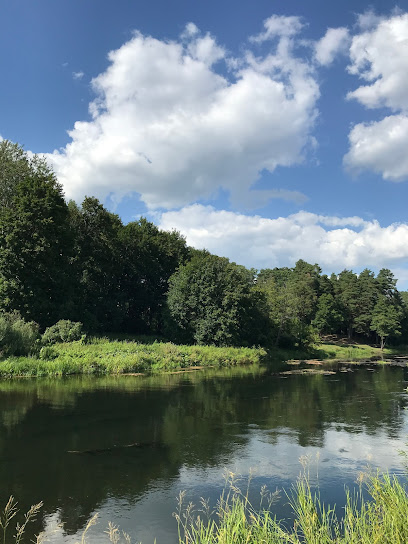
M.K. Čiurlionis Museum of Art
Explore the mystical artworks of M.K. Čiurlionis at the premier art museum in Kaunas, celebrating Lithuania's rich cultural heritage.
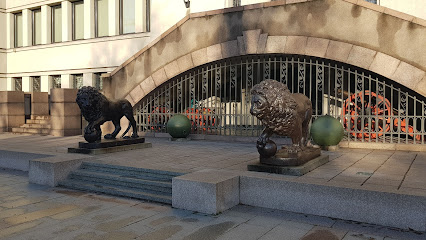
Devils' Museum
Explore the whimsical world of devils at Kaunas' unique Devils' Museum, where folklore and art meet to create an unforgettable experience.
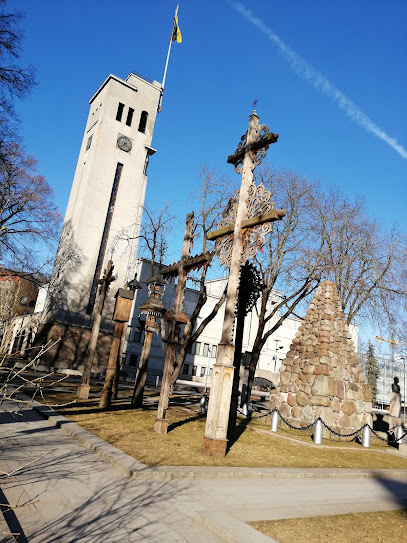
Marvelė cascade
Experience the breathtaking beauty of Marvelė Cascade, a natural wonder in Kaunas, offering stunning waterfalls and serene landscapes for all nature lovers.
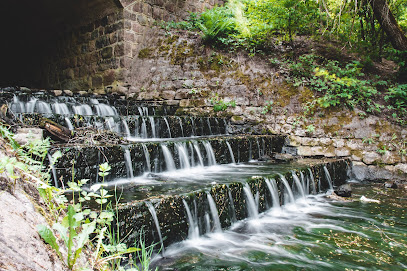
Kaunas Town Hall
Explore the historic Kaunas Town Hall, a stunning blend of Gothic and Renaissance architecture, in the heart of Kaunas, Lithuania.
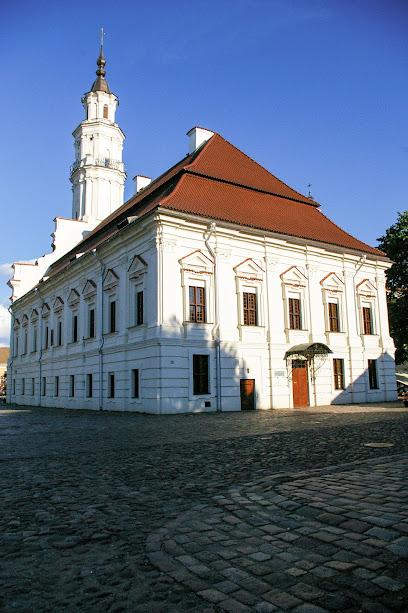
Essential places to dine
CASA DELLA PASTA - Laisvės al. 27
Discover authentic Italian cuisine at Casa Della Pasta in Kaunas – where tradition meets modern dining in every delicious bite.
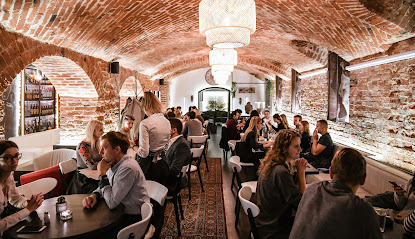
Talutti - Tex-Mex
Experience authentic Tex-Mex cuisine at Talutti in Kaunas - where every bite is bursting with flavor!
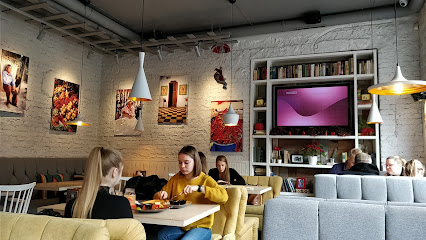
Višta puode
Discover Višta puode: A delightful restaurant in Kaunas serving traditional Lithuanian dishes with a modern twist.
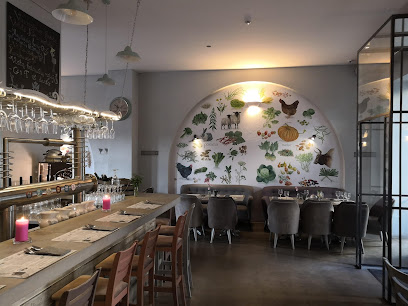
Mtevani
Savor authentic Georgian cuisine at Mtevani in Kaunas - where tradition meets flavor in every dish.
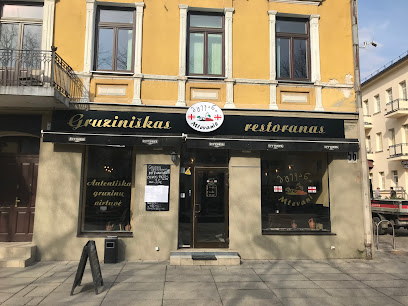
Amber Grill
Discover the flavors of Lithuania at Amber Grill in Kaunas - where quality meets affordability in a welcoming atmosphere.
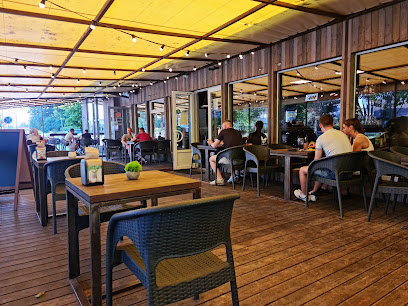
Baking Mad Hidden Lab
Experience innovative cuisine at Baking Mad Hidden Lab - Kaunas' top destination for food lovers seeking creativity and flavor.
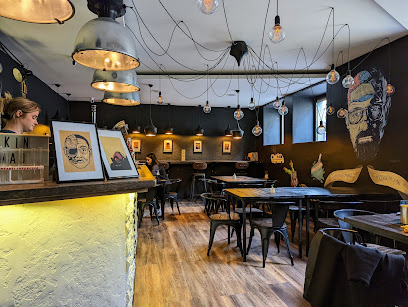
Jurgis ir Drakonas
Experience the best pizza in Kaunas at Jurgis ir Drakonas – where flavor meets family-friendly dining.
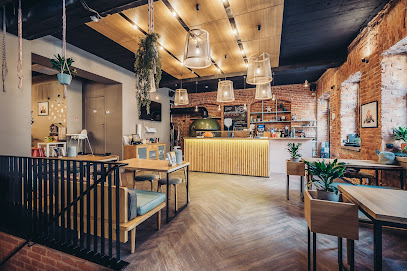
Bernelių užeiga Smuklė
Discover authentic Lithuanian cuisine at Bernelių užeiga Smuklė in Kaunas – where tradition meets flavor in a cozy setting.
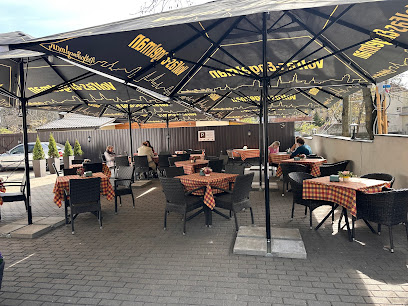
Pas Stanley
Experience the best of Lithuanian cuisine at Pas Stanley in Kaunas - where tradition meets modern culinary artistry.
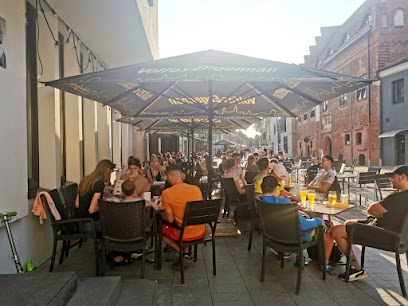
Pelėdinė
Discover Pelėdinė in Kaunas - A must-visit gastropub offering local flavors with a modern twist in a cozy atmosphere.
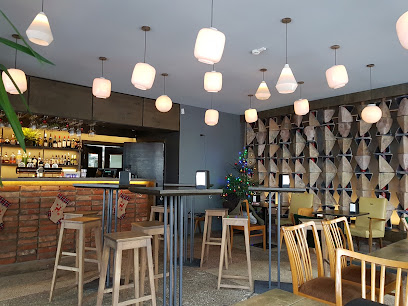
DIA
Discover DIA in Kaunas: A high-end restaurant offering exquisite local cuisine in a chic setting perfect for all occasions.
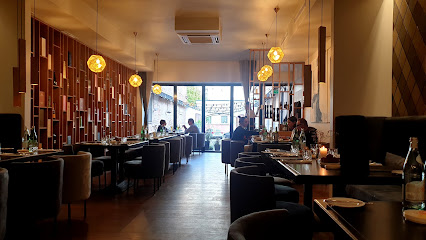
CITY GARDEN, UAB restaurant
Experience the flavors of Lithuania at City Garden, UAB – where tradition meets innovation in a vibrant dining atmosphere.
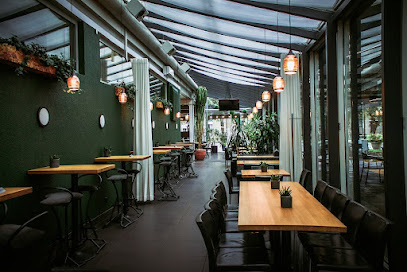
Piccola Italia - neapolitan pizzeria
Savor authentic Neapolitan pizza and Italian delicacies at Piccola Italia in Kaunas - where every bite feels like Italy.
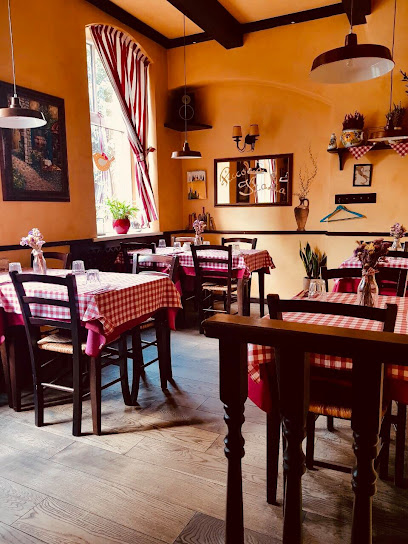
KUHNE
Discover the flavors of Lithuania at Kuhne in Kaunas - where traditional meets modern in a cozy dining experience.
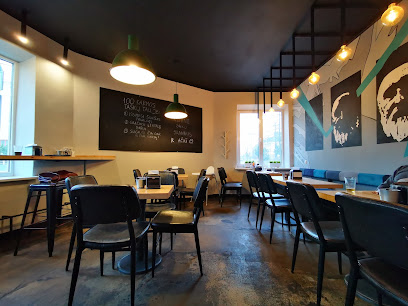
HOP DOC Gastropub
Discover HOP DOC Gastropub in Kaunas for delicious local cuisine and an extensive craft beer selection in a cozy atmosphere.
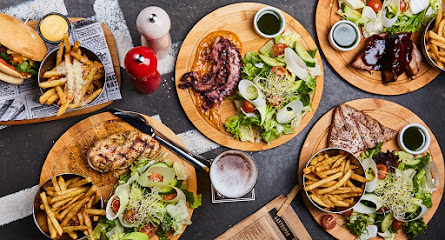
Markets, malls and hidden boutiques
MEGA
Experience shopping like never before at MEGA, the largest mall in Kaunas, offering endless options for fashion, fun, and family entertainment.
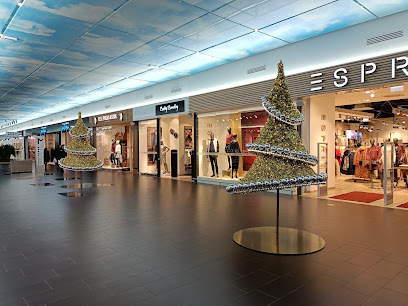
Akropolis
Explore Akropolis in Kaunas: A vibrant shopping mall with over 150 stores, dining options, and entertainment for all ages.
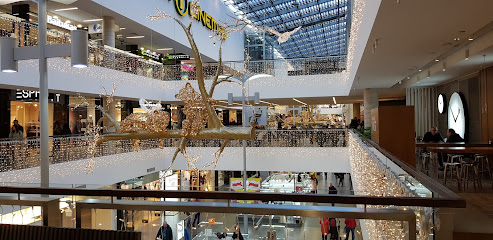
Flying Tiger Copenhagen
Explore the whimsical world of Flying Tiger Copenhagen, a vibrant gift shop in Kaunas filled with unique treasures and delightful surprises for all ages.
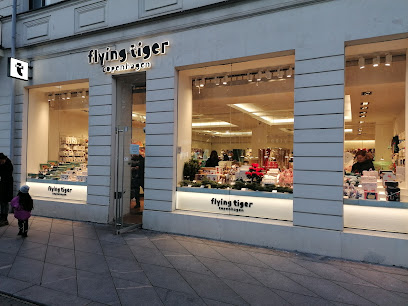
Humana Vintage
Explore unique pre-loved fashion at Humana Vintage, your go-to thrift store in Kaunas, showcasing an eclectic mix of clothing and accessories.
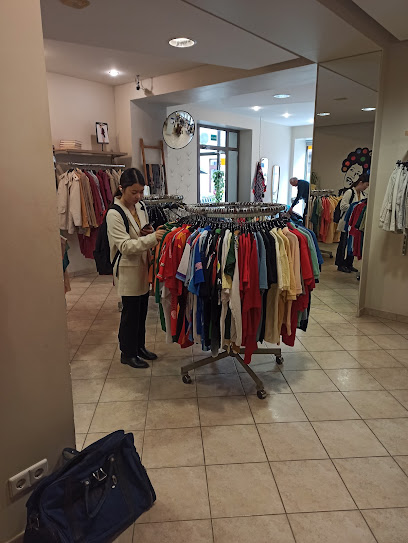
HUMANA LT (E. Ožeškienės g. 9, Kaunas)
Explore sustainable fashion and unique styles at HUMANA LT, a must-visit clothing store in Kaunas known for its eclectic collection and affordable prices.
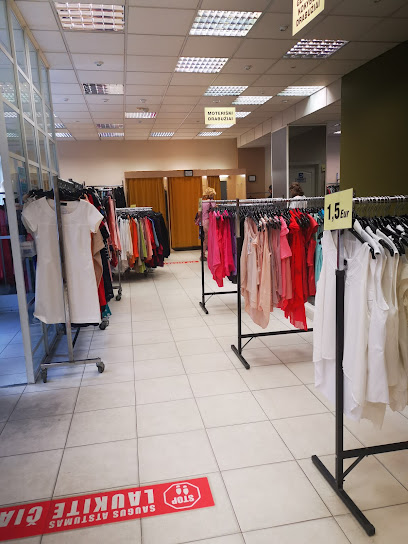
SISSI delicatessen shop
Explore SISSI Delicatessen Shop in Kaunas for gourmet groceries and unique gifts that showcase Lithuanian flavors and craftsmanship.
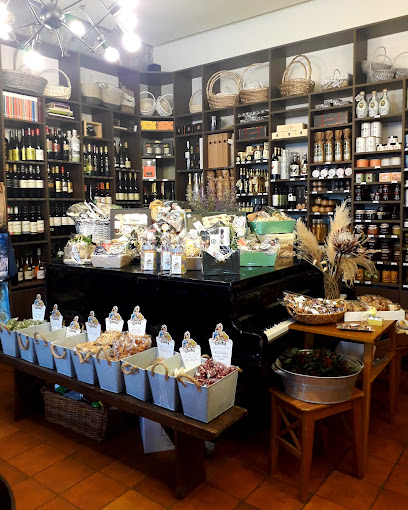
Gausa
Discover the charm of vintage fashion at Gausa, a sustainable used clothing store in the heart of Kaunas, perfect for unique finds and eco-friendly shopping.
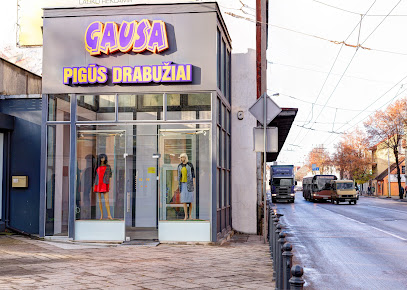
Antikvaras Kaune. Antikvariatas
Explore a treasure trove of antiques, vintage clothing, and collectibles at Antikvaras Kaune, the heart of Kaunas's rich history and culture.
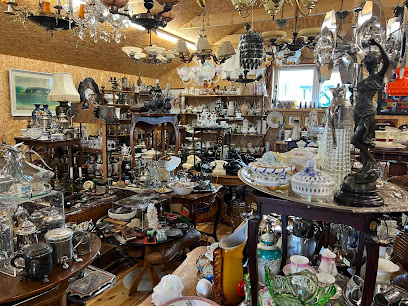
kARTu
Explore kARTu, a gem in Kaunas offering unique gifts, boutique items, and stylish handbags that celebrate local craftsmanship.
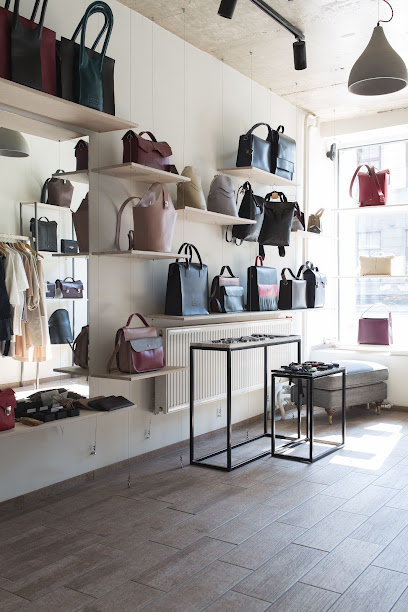
Suvenyrai
Explore Suvenyrai, a delightful store in Kaunas offering handcrafted jewelry, stunning paintings, and unique souvenirs reflecting Lithuanian culture.
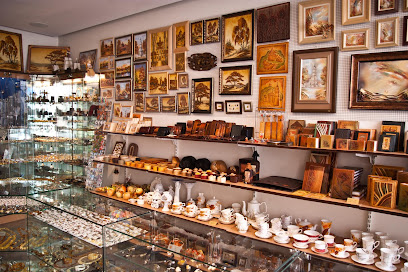
Space Style Concept
Explore Space Style Concept in Kaunas for unique clothing and accessories that embody the essence of modern fashion.
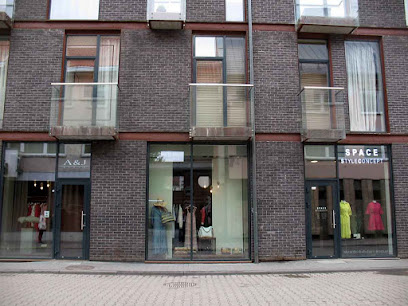
minimi
Discover Minimi in Kaunas – your gateway to unique Lithuanian souvenirs and local craftsmanship.
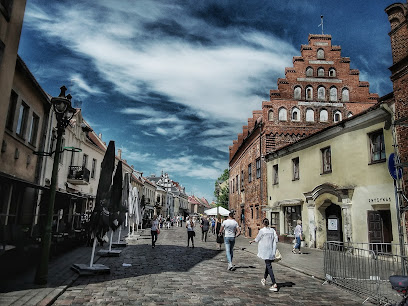
Amatų namai
Explore a unique selection of handcrafted gifts reflecting Lithuanian culture at Amatų namai in Kaunas.
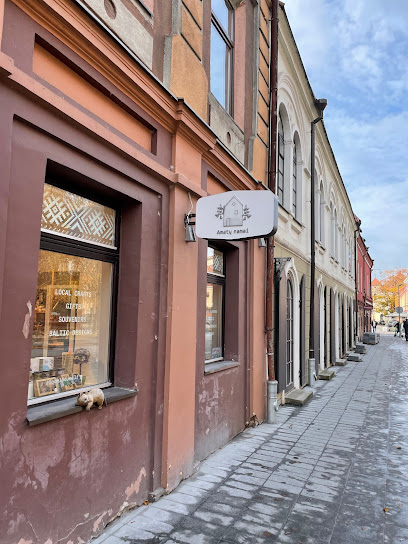
EASY IŠPARDUOTUVĖ
Explore unique fashion finds at EASY IŠPARDUOTUVĖ, Kaunas' trendy clothing store offering stylish apparel and accessories for every taste.
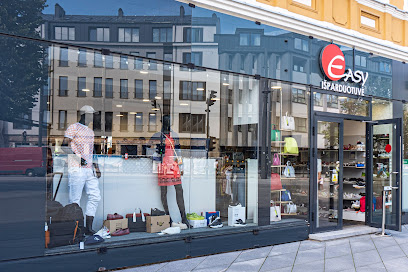
Suvenyrai Laisvės al.
Explore an array of unique Lithuanian crafts and souvenirs at Suvenyrai Laisvės al. in Kaunas, where culture meets creativity.
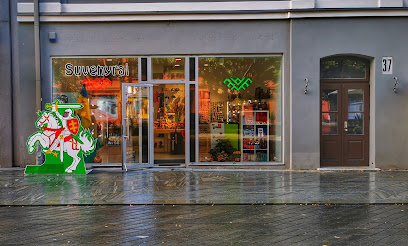
Essential bars & hidden hideouts
rePUBlic No.1
Discover Kaunas’ vibrant nightlife at rePUBlic No.1, a top sports bar offering great drinks, delicious food, and an electrifying atmosphere.
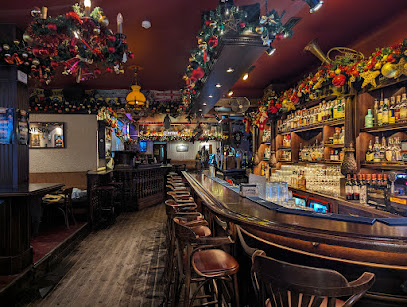
Džem'pub
Experience Kaunas nightlife at Džem'pub, a lively pub offering live music, stunning views, and a vibrant atmosphere.
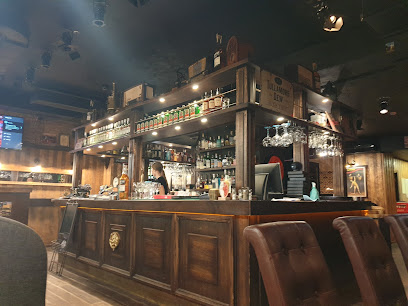
Kultura!
Discover Kultura! in Kaunas - a lively pub with local flavors, excellent drinks, and a vibrant atmosphere perfect for tourists and locals alike.
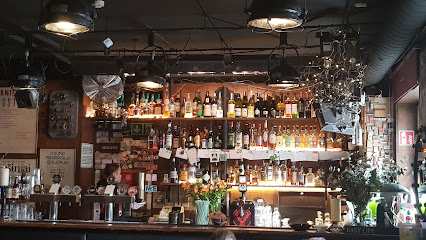
2½ obuolio cider pub
Experience the finest craft ciders and delicious steaks at 2½ Obuolio Cider Pub, a must-visit for every tourist in Kaunas.
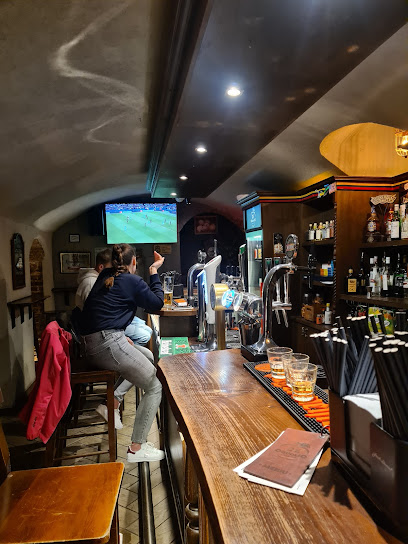
Piano Piano
Discover the vibrant culinary scene at Piano Piano, a bar and pizzeria in Kaunas offering delicious pizzas and a wide selection of drinks.
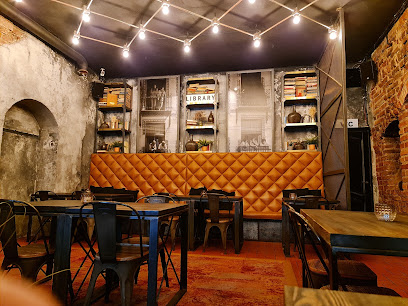
Vingiu Dubingiu Aludė
Explore the vibrant craft beer scene at Vingiu Dubingiu Aludė, a top-rated beer hall in Kaunas offering local brews and a lively atmosphere.
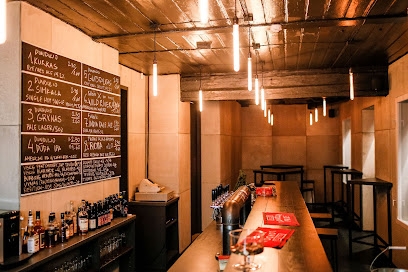
HOP DOC Gastropub
Savor the unique flavors of local cuisine at HOP DOC Gastropub, where traditional dishes meet modern culinary artistry in Kaunas.
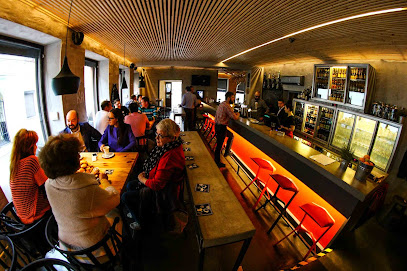
Rocknrolla bar&kitchen
Discover the lively ambiance of Rocknrolla Bar & Kitchen in Kaunas, where delicious grilled dishes meet vibrant nightlife in an unforgettable setting.
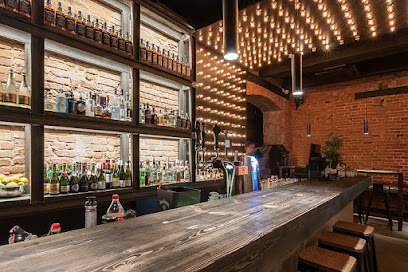
Bardakas. Kaunas
Experience the vibrant nightlife at Bardakas, a lively bar in Kaunas offering delicious drinks, great music, and a welcoming atmosphere for all.
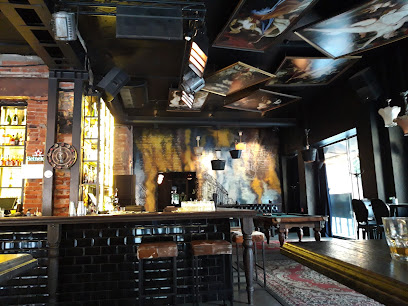
Godo
Experience the vibrant atmosphere of Godo in Kaunas, where drinks, culture, and community come together in a perfect blend.
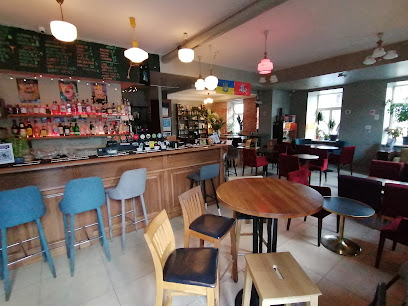
Shamrock Pub
Discover Shamrock Pub in Kaunas - the heart of Irish hospitality with an extensive drink selection and vibrant atmosphere.
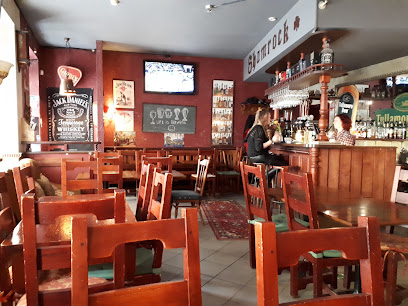
YZYbar
Discover the vibrant flavors of Kaunas at YZYbar, where delicious grilled dishes meet craft cocktails in a lively atmosphere.
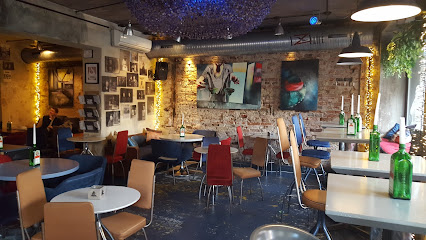
Rebels
Discover the vibrant nightlife at Rebels in Kaunas, where delicious food and lively drinks create an unforgettable experience.
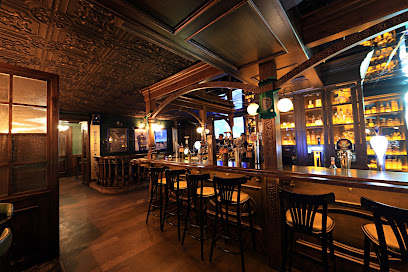
Hogas Pub
Experience the vibrant flavors of Lithuanian cuisine at Hogas Pub, a grill haven in the heart of Kaunas, perfect for tourists seeking local tastes.
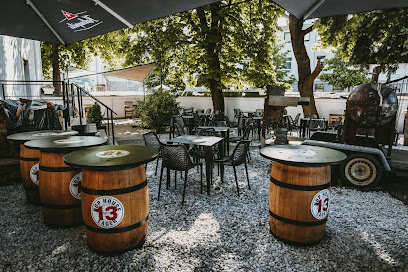
Local Phrases
-
- HelloLabas
[lah-bahs] - GoodbyeViso gero
[vee-soh geh-roh] - YesTaip
[taip] - NoNe
[neh] - Please/You're welcomePrašau
[prah-shau] - Thank youAčiū
[ah-choo] - Excuse me/SorryAtsiprašau
[aht-see-prah-shau] - How are you?Kaip gyveni?
[kaip gee-veh-nee] - Fine. And you?Gerai. O tu?
[geh-rai. oh too] - Do you speak English?Ar kalbate angliškai?
[ahr kahl-bah-teh ahng-leesh-kai] - I don't understandAš nesuprantu
[ahsh neh-soo-prahn-too]
- HelloLabas
-
- I'd like to see the menu, pleaseNorėčiau pamatyti meniu, prašau
[noh-reh-chiau pah-mah-tih mee-nyoo, prah-shau] - I don't eat meatAš nevalgau mėsos
[ahsh neh-vahl-gow meh-sohs] - Cheers!Į sveikatą!
[ee svee-kah-tah] - I would like to pay, pleaseNorėčiau sumokėti, prašau
[noh-reh-chiau soo-moh-keh-tee, prah-shau]
- I'd like to see the menu, pleaseNorėčiau pamatyti meniu, prašau
-
- Help!Pagalba!
[pah-gahl-bah] - Go away!Eik šalin!
[ayk shah-leen] - Call the Police!Paskambinkite policijai!
[pah-skahm-been-kee-teh poh-lee-tsee-yai] - Call a doctor!Paskambinkite gydytojui!
[pah-skahm-been-kee-teh gih-duh-toh-yoo-ee] - I'm lostAš pasiklydau
[ahsh pah-see-kloo-dow] - I'm illAš sergu
[ahsh sehr-goo]
- Help!Pagalba!
-
- I'd like to buy...Norėčiau pirkti...
[noh-reh-chiau peerk-tee] - I'm just lookingAš tik žiūriu
[ahsh teek zhee-oo-ree-oo] - How much is it?Kiek tai kainuoja?
[kyeek tahy kahy-noo-oyah] - That's too expensiveTai per brangu
[tai pehr brahn-goo] - Can you lower the price?Ar galite sumažinti kainą?
[ahr gah-lee-teh soo-mah-zeen-tee kahy-nah]
- I'd like to buy...Norėčiau pirkti...
-
- What time is it?Kiek valandų?
[kyeek vah-lahn-dooh] - It's one o'clockViena valanda
[vyeh-nah vah-lahn-dah] - Half past (10)Dešimt valandų pusė
[deh-shimt vah-lahn-dooh poo-say] - MorningRytas
[rih-tahs] - AfternoonPopietė
[poh-pyeh-teh] - EveningVakaras
[vah-kah-rahs] - YesterdayVakar
[vah-kahr] - TodayŠiandien
[shahn-dyehn] - TomorrowRytoj
[rih-toy] - 1Vienas
[vyeh-nahs] - 2Du
[doo] - 3Trys
[treese] - 4Keturi
[keh-too-ree] - 5Penki
[pehn-kee] - 6Šeši
[sheh-shi] - 7Septyni
[sehp-tee-nee] - 8Aštuoni
[ahs-too-oh-nee] - 9Devyni
[deh-vee-nee] - 10Dešimt
[deh-shimt]
- What time is it?Kiek valandų?
-
- Where's a/the...?Kur yra...?
[koor eer-ah] - What's the address?Kokia adresas?
[koh-kyah ah-dreh-sahs] - Can you show me (on the map)?Ar galite man parodyti (žemėlapyje)?
[ahr gah-lee-teh mahn pah-roh-duh-tee zheh-meh-lah-pyeh] - When's the next (bus)?Kada yra kitas (autobusas)?
[kah-dah eer-ah kee-tahs ow-toh-boo-sahs] - A ticket (to ....)Bilietas (į ....)
[bee-lyeh-tahs ee]
- Where's a/the...?Kur yra...?
History of Kaunas
-
Kaunas, situated at the confluence of the Nemunas and Neris rivers, has a rich history dating back to at least the 10th century. The city first appears in written records in 1361 when it was attacked by the Teutonic Knights. In 1408, Grand Duke Vytautas granted Kaunas Magdeburg rights, which significantly boosted its development and status as a major trade center.
-
The 16th and 17th centuries were times of prosperity for Kaunas. During the Renaissance, the city became known for its thriving trade and cultural exchange. The Baroque period saw the construction of many notable buildings, including the Jesuit Church of St. Francis Xavier and the Town Hall, often referred to as the 'White Swan.'
-
Following the partitions of Poland in the late 18th century, Kaunas became part of the Russian Empire. The city experienced significant changes during this period, including the construction of the Kaunas Fortress in the late 19th century. This military stronghold was intended to defend the Russian Empire's western borders and remains a significant historical site.
-
After World War I and the subsequent collapse of the Russian Empire, Lithuania declared independence in 1918. Kaunas became the temporary capital of Lithuania from 1920 to 1940 when Vilnius was under Polish control. During this time, the city underwent rapid modernization and development, becoming a hub of political, cultural, and economic activity.
-
Kaunas faced significant hardship during World War II, experiencing both Soviet and Nazi occupations. The city was heavily affected by the Holocaust, with a large portion of its Jewish population being murdered. Post-war, Kaunas was incorporated into the Soviet Union, leading to decades of Soviet influence until Lithuania regained independence in 1990.
-
Since regaining independence from the Soviet Union in 1990, Kaunas has undergone substantial transformation. The city has embraced its historical heritage while developing modern infrastructure. Kaunas is now known for its vibrant cultural scene, hosting numerous festivals, museums, and cultural events, and has become a significant center for education and innovation in Lithuania.
Kaunas Essentials
-
Kaunas is located in the heart of Lithuania and is accessible through various means. The closest international airport is Kaunas Airport (KUN), which is about 14 kilometers away from the city center. Alternatively, travelers can fly into Vilnius International Airport (VNO), which is approximately 100 kilometers away, and then take a train, bus, or car to Kaunas. Regular trains and buses connect Kaunas with major cities in Lithuania and neighboring countries such as Latvia and Poland.
-
Kaunas has a well-developed public transportation system, including buses and trolleybuses. Tickets can be purchased at kiosks or directly from the driver. Taxis and ride-sharing services like Bolt are also widely available. For those who prefer to drive, car rental services are available at the airport and in the city. The city is bike-friendly, with numerous bike rental stations and dedicated cycling paths.
-
The official currency in Lithuania is the Euro (EUR). Credit and debit cards are widely accepted in hotels, restaurants, and shops. ATMs are plentiful, and most offer the option to withdraw cash in multiple languages. It's advisable to carry some cash for small purchases, especially in local markets and smaller establishments.
-
Kaunas is generally a safe city for tourists, but it is always wise to stay vigilant. Avoid walking alone late at night in poorly lit areas. The Old Town and city center are safe, but be cautious in more remote neighborhoods. Pickpocketing can occur in crowded places, so keep an eye on your belongings. It's advisable to use a money belt or a secure bag.
-
In case of emergency, dial 112 for immediate assistance. This number connects you to police, fire, and medical services. The main hospitals in Kaunas include Kaunas Clinics and Kaunas Red Cross Hospital. Pharmacies are widely available for minor health issues. Always carry a copy of your travel insurance and identification.
-
Fashion: Do dress modestly, especially when visiting religious sites. Avoid overly casual attire in fine dining restaurants. Religion: Do respect local customs; remove hats and remain quiet when visiting churches. Public Transport: Do validate your ticket upon boarding and give up your seat to elderly passengers. Don’t eat or drink on public transport. Greetings: Do greet people with a firm handshake and maintain eye contact. Eating & Drinking: Do try local dishes and accept food offerings graciously. Don’t leave food on your plate as it may be considered wasteful.
-
To experience Kaunas like a local, visit the local farmers' markets such as Urmas and Aleksotas Markets for fresh produce and traditional Lithuanian goods. Take a leisurely walk along Laisvės Alėja, a pedestrian street lined with shops and cafes. Engage with locals; they are often friendly and willing to share insights about their city. Don’t miss the chance to explore the Ninth Fort and the Kaunas Castle for a deep dive into the city’s history.
Trending Landmark in Kaunas
-
Nemunas and Neris Confluence Park
-
Oak-Wood Park
-
9th Fort of the Kaunas Fortress
-
Pažaislis Monastery and Church
-
Aleksotas Observation Deck
-
Panemunė pinewood
-
Vytautas the Great War Museum
-
M.K. Čiurlionis Museum of Art
-
Church of St. Michael the Archangel, Kaunas
-
Christ's Resurrection Church
-
Devils' Museum
-
Kaunas Town Hall
-
Historical Presidential Palace, Kaunas
-
Church of Vytautas the Great
-
Church of St. Gertrude
Nearby Cities to Kaunas
-
Things To Do in Jonava
-
Things To Do in Marijampolė
-
Things To Do in Vilnius
-
Things To Do in Panevėžys
-
Things To Do in Suwalki
-
Things To Do in Šiauliai
-
Things To Do in Utena
-
Things To Do in Klaipėda
-
Things To Do in Daugavpils
-
Things To Do in Bialystok
-
Things To Do in Jurmala
-
Things To Do in Riga
-
Things To Do in Olsztyn
-
Things To Do in Liepaja
-
Things To Do in Sigulda

















